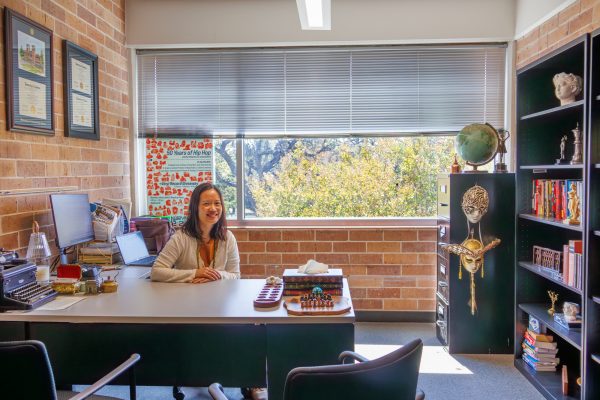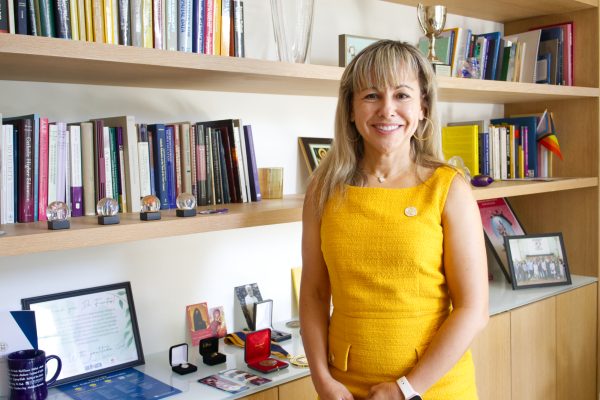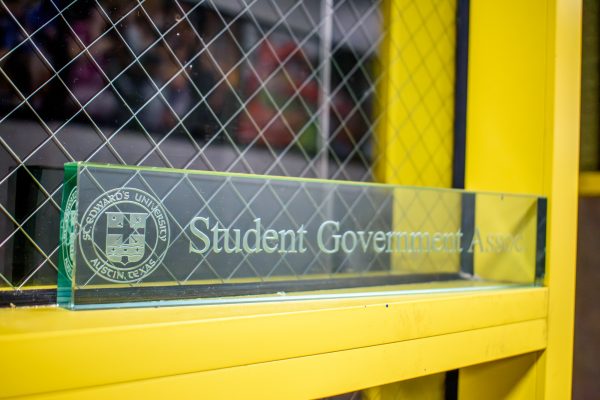University to participate in sustainabiliy assessment
On the surface, the environmental impact of St. Edward’s University appears to be significantly lower than a decade ago due to recent projects and improvements. Single-stream recycling, purchasing electricity from renewable energy sources and implementing architectural designs that increase energy efficiency—such as white reflective roofs on Doyle Hall and the science building—have all lessened the university’s impact.
Despite recent progress, the administration recognizes more can be done, and the university will participate in an assessment program designed for institutions of higher education to measure sustainability performance and identify areas of improvement.
Over the course of one year, Cristina Bordin, sustainability coordinator and assistant to the president, will collect data for the Sustainability Tracking, Assessment and Rating System (STARS).
Bordin believes STARS is an important tool that can help the university move forward in becoming a more sustainable campus.
“The assessment tool will enable the university to see areas of improvement, and then from there the university can prioritize what projects it will move forward,” Bordin said.
STARS is a program under the Association for the Advancement of Sustainability in Higher Education (AASHE), an organization that provides access to sustainability resources for member colleges and universities. St. Edward’s joined AASHE in spring 2011.
“I believe, and the environmental stewardship committee believes, that [STARS is] a system that was developed for higher education so we can compare with peer institutions and learn from others,” Bordin said.
Bordin said the process will take approximately one year to collect all the data required for the STARS report. The university will then be measured on sustainability performance based on the information in the report in three defined categories: education and research, operations and planning, and administration and engagement.
The process will involve collaboration from several offices on campus, including Facilities, Financial Affairs, and the Office of Student Affairs.
STARS is self-reporting, meaning all the data will be collected by people from within the university. Bordin and student assistant freshman Sam McClure, an environmental science and policy major, will collect and compile information for the report.
Once the report is submitted, the university will receive a rating based on sustainability leadership and progress, according to the STARS website.
Ratings range from bronze, the lowest rating available, to platinum, the highest rating, and the ratings are determined based on an institution’s score out of 100 points.
The finished report will be posted on the STARS website and available to other STARS participants on the website. A STARS rating is valid for three years, and the university can submit new data once a year.
In addition to her efforts on campus, Bordin attended AASHE’s annual conference Oct. 9-12 in Pittsburgh to network with students and staff from other colleges and universities also interested in environmental sustainability.
“While I was attending AASHE conference, some institutions were saying it’s too much work to go and collect this information every year … but after that year departments create processes that were much easier to collect the information,” Bordin said. “Even if we don’t do it every year, it’s a good tool to assess how we’re





